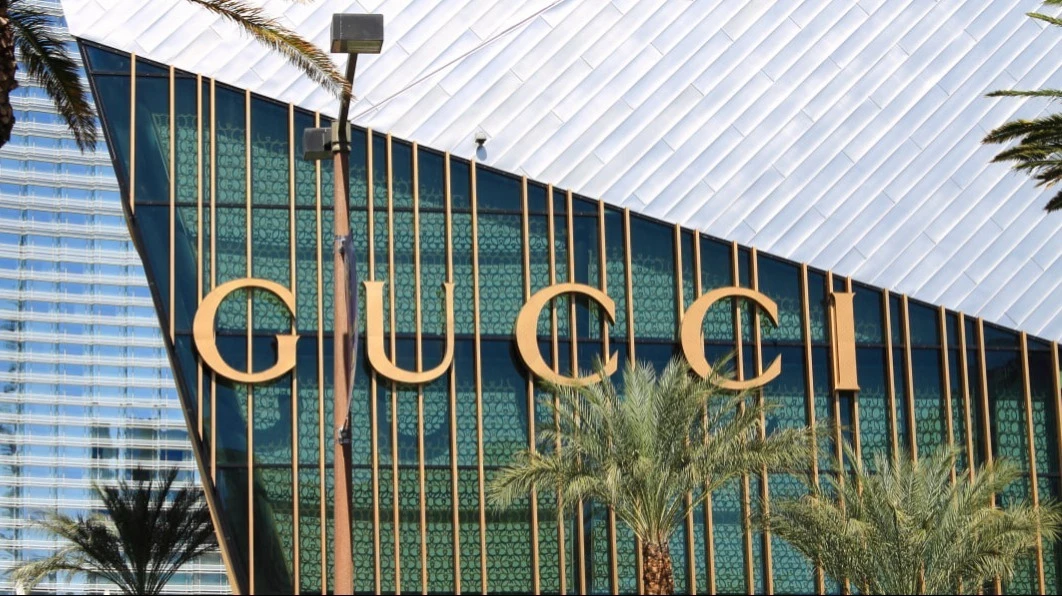Shares in the owner of Gucci have hit a high in more than a year. He will sell part of the business
Kering suffers from high debt and has to look for ways to reduce it

Kering, which owns luxury brand Gucci, has agreed to sell its beauty business Kering Beauté to French cosmetics holding company L'Oreal for €4 billion. Kering shares jumped 5.5% to their highest level in more than a year, an important step toward reducing Kering's net debt and the first strategic move by the company's new CEO. Analysts believe that divesting from Kering Beauté is a necessity for Kering as part of its reorganization.
Details
Kering has agreed to sell its Kering Beauté beauty business to cosmetics giant L'Oreal for €4 billion ($4.66 billion). The deal is expected to be finalized in the first half of 2026.
L'Oreal, the world's largest specialty cosmetics and grooming products maker, will acquire Creed's perfume line and will also acquire the rights to develop perfume and beauty products under Kering's fashion brands Gucci, Bottega Veneta and Balenciaga under an exclusive 50-year license. The deal will be the largest in L'Oreal's history, surpassing the $2.5 billion purchase of Australian brand Aesop in 2023, Reuters notes.
Kering shares were up 5.5% at the moment in Paris trading on October 20: the price rose to €326.5 euros, the highest since mid-July 2024. L'Oreal shares were up about 1.4%, but then slowed to about 0.6%.
Why Kering is selling the business
Kering created Kering Beauté in 2023 after acquiring perfume maker Creed for €3.5 billion: the company wanted to diversify its operations and reduce its reliance on flagship brand Gucci. The decision to sell it is an important step towards reducing Kering's net debt, according to Reuters. At the end of June, the debt amounted to €9.5 billion - in addition to €6 billion in long-term lease obligations: this caused concern among investors, the agency said.
It is also the first strategic initiative of new CEO Luca de Meo, who took over in September, amid falling demand for Gucci in China and the threat of higher tariffs in the U.S., Reuters added.
De Meo, who succeeds François-Henri Pinault, is expected to present his new vision for Kering in spring 2026, Bloomberg adds. De Meo has previously told shareholders that he plans to make some tough decisions to reduce the group's debt load, including rationalization and reorganization if necessary. The company has also postponed a plan to fully acquire Italian fashion brand Valentino and is looking to sell stakes in its real estate holdings to raise funds.
What the analysts are saying
Bernstein analysts said that "selling Kering Beauté for roughly the same amount for which Creed was bought two years ago is bitter but necessary medicine" for Kering.
A return to a beauty licensing model would be "less capital-intensive, operationally dependent and probably more marginal," the RBC analysts said , even if some revenue would have to be shared with L'Oreal.
"We also believe this is indicative of a strategic refocus on core competencies in the soft luxury segment, and any diversification in beauty could free up investment resources for these priorities," the RBC experts wrote.
What about the stock
Kering's shares in July-September showed the best quarter in history: over the three months the securities added more than 50% in price, and in relation to June, when it became known about the appointment of a new CEO, the growth exceeded 60%.
However, analysts' sentiments about the company's shares remain contradictory. If de Meo manages to turn the situation in Gucci, the potential for growth of securities will be significant, some believe. Thus, John San Marko from Neuberger Berman told Bloomberg that the new CEO has already begun to form the basis for recovery - appointed a new head of Gucci and promised to reduce costs. Skeptics, however, note that the turnaround is already partially embedded in the stock price. Since July, Kering securities have been trading at a premium to earnings relative to the Goldman Sachs industry basket, although they remained cheaper than it for more than five years before that, Bloomberg writes.
October 16, Berenberg analyst Nick Anderson downgraded Kering SA shares from "hold" to "sell" and set a target price of €160. He attributed this decision to concerns about weakening demand for luxury goods, especially from Chinese buyers and middle-market consumers, who are now experiencing financial constraints.
In the same month, Morgan Stanley, on the contrary, improved the rating of Kering securities to "buy", predicted their growth by another 20% and called the owner of Gucci its main favorite among European luxury brands.
This article was AI-translated and verified by a human editor
